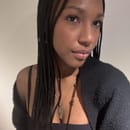Within the last 10 years, society’s view on feminism has changed greatly, with a wide range of new ideas emerging with every passing moment. This range is reflected in feminist literature, with one quick search drawing thousands of results.
While useful, the amount of information can leave someone feeling lost in a sea of theory and looking for a place to start learning. In this listicle, you’ll find five key pieces of feminist theory to start anyone on a feminist literature journey.
- The Second Sex by simone de beauvoir
-
Arguably one of the most important pieces of feminist literature, Simone De Beauvoir’s The Second Sex describes the oppression of women by an “othering,” being viewed as a secondary, lesser sex to men. De Beauvoir addresses the issue of men viewing women only in relation to themselves, stripping women of their humanity and autonomy.
Written in 1949, this book is cemented as one of the classics in feminist theory, being referenced and expanded upon in countless other books. The Second Sex has greatly aided in the general understanding of women’s oppression on a large scale, making it a great first read.
- The Beauty Myth by Naomi Wolf
-
Following in the footsteps of De Beauvoir, Naomi Wolf’s The Beauty Myth explains a key concept and its impact on the lives of women. Wolf describes how the concept of beauty acts as a constraint on women.
She explains that the portrayal of female beauty harms women, pushing them into conformity and limiting their humanity. Wolf highlights the control that beauty has on women and emphasizes its role in the patriarchy, undermining women’s freedom.
As beauty standards play a large role in the lives of women, a deeper understanding of them is a great tool for any feminist.
- Sexual Politics by Kate Millet
-
One of the difficulties of feminist theory lies in a lack of definition of abstract terms and concepts that can be hard for young feminists to grasp. Kate Millet’s 1970 feminist classic Sexual Politics helps solve this problem.
It creates a definition of the patriarchy still used over 50 years later and criticizes the literary works of her time. The establishment of the patriarchy as a political system relying on women’s submission and the manipulation of power is a key feature of many feminist ideologies.
Dubbed the “the first book of academic feminist literary criticism,” Millet’s work can offer any new feminists a look into the history of feminist literature.
- Hood Feminism by Mikki Kendall
-
One large criticism of classic feminist literature is a lack of acknowledgment of the experiences of women of colour. Mikki Kendall beautifully addresses the intersectional experience of racialized women in her 2020 release, Hood Feminism.
Bestselling author Ibram X. Kendi described the piece as “feminism rooted in the livelihood of everyday women.” Hood Feminism states that hunger, homelessness and forms of oppression not solely targeting women are all feminist issues, as women who face these challenges are impacted by them as well as the patriarchy in a unique way.
As feminism throughout history has lacked this intersectional viewpoint, new feminists should look through this lens, and Hood Feminism is a great place to start.
- Living a Feminist Life by Sarah Ahmed
-
Oftentimes, feminist theory can be detached from the everyday reality of women, making it difficult for those new to the concepts to digest and understand the material. In Living a Feminist Life, Sarah Ahmed beautifully connects feminist theory with the material conditions of women and explains the origins of feminist theory in history.
Ahmed encourages feminists to question themselves and their surroundings. She dismisses the idea of a “right” form of feminism. It’s easy to view yourself as a bad feminist when first learning about the concept, but Ahmed provides both a functional definition of feminism and a way for new feminists to better understand and apply the teachings of feminist theory in their own lives.


